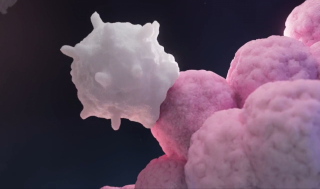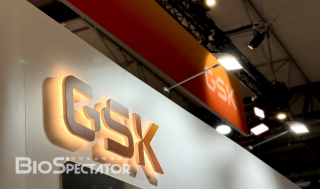탐방
The Two-Track Strategy of J2H Biotech: “Development of Innovative and Incrementally Modified Drugs”
by Jongwon jang
Development of New Drugs targeted for Rare and Intractable diseases, such as HCV, NASH, and ALS / Emergence of the Cash Cows of Incrementally Modified Drugs, such as Viread® and Champix®

▲J2H 바이오텍의 김재선 대표(왼쪽)와 유형철 대표.
J2H Biotech is a bio-corporation with a business model that is differentiated from that of conventional companies developing new drugs. The company is based on the development of innovative new drugs, and to secure its financial independence, simultaneously pursues the cash-cow business of incrementally modified drugs, CMO, and the development of raw materials for medicine (API). In addition, instead of focusing on platform technologies, the company focuses on the fulfillment of unmet needs based on thorough market analyses.
President Kim stated, “… we will put all our effort into achieving innovation, and accomplishing sales objectives in balance. Further needs in the market will be identified to promote cash flows in our business.”
The development of new drugs in the J2H Biotech is currently proceeding on two tracks. There are two pipelines for the “New Chemical Entity”, and the “Prodrug”. The term “prodrug” means an inactive substance or a biologically inactive compound that can be metabolized in the body to produce, or to be converted into, an active drug.
The company explained that, “… in the pipeline of the new chemical entity, the drugs for hepatitis C and non-alcoholic steatohepatitis are in the stage of non-clinical trial, whereas in the pipeline of the prodrug, the candidates for prodrugs enabling oral administration for amyotrophic lateral sclerosis are being evaluated.”
J2H-1701 is an orally administrable prophylactic that suppresses the recurrence of hepatitis C before and after liver transplantation. J2H-1701 suppresses the function of glycoprotein, thereby preventing the infiltration of HCV into liver cells. This belongs in the domain of the highest unmet needs in the field of hepatitis C. In the United States of America, an antibody drug being developed as an inhibitor for ‘HCV Entry’ was appointed as an orphan drug.
President Kim commented, “… J2H-1701 manifested therapeutic effects for all genotypes of HCV. In particular, it retained its therapeutic effect over the virus that had gained resistance against existing DAA therapeutic agents.” He continued, “… in contrast to conventional competitive drugs that are antibody drugs of intravenous injection, the orally administrable J2H-1701 provides patients with the convenience of medication and economy of low price realized from the synthesis of compound.”
J2H Biotech aims for the market of NASH. J2H-1702, a candidate for the new drug, is an orally administrable low molecular compound; it has been developed from an observation of one of the therapeutic agents for diabetes mellitus that exhibited high manifestation from patients suffering from non-alcoholic steatohepatitis.
The advantages of the medication of J2H-1702 can be represented through the suppression of intercellular adiposity, and reduction in LDL and neutral fat. The company expressed that the oral administration of J2H-1702 resulted in a particularly significant decrease in LDL and neutral fat, without the reduction of HDL from an animal model of obesity, of diabetes mellitus type 2, and of non-alcoholic steatohepatitis that exhibited dosage-dependent reduction in the amount of cholesterol.
Last September, J2H Biotech concluded an MOU with Theragen Etex Co., Ltd. for the development of a therapeutic agent for non-alcoholic steatohepatitis. The two companies intend to develop an orally administrable new drug to compensate for the disadvantages of the existing agent for ALS, the Radicava, which is supposed to be administered through intravenous infusion.
President Kim also added, “… we are trying to find shortcuts toward the development of new drugs through strategic approaches based on close analyses and a variety of plans, rather than relying on specialized platform technologies. Key to the successful accomplishment of new drugs would be a surprisingly simple idea. This should be followed by thorough analyses, and strategies based thereon.”



















